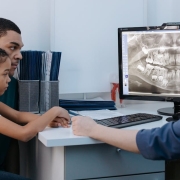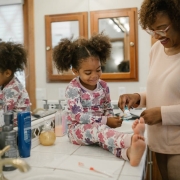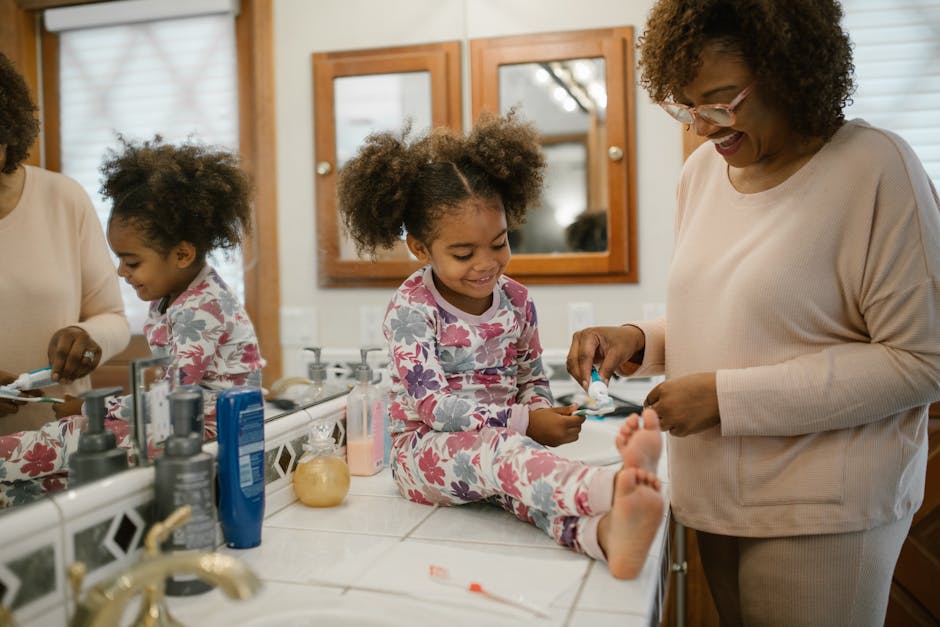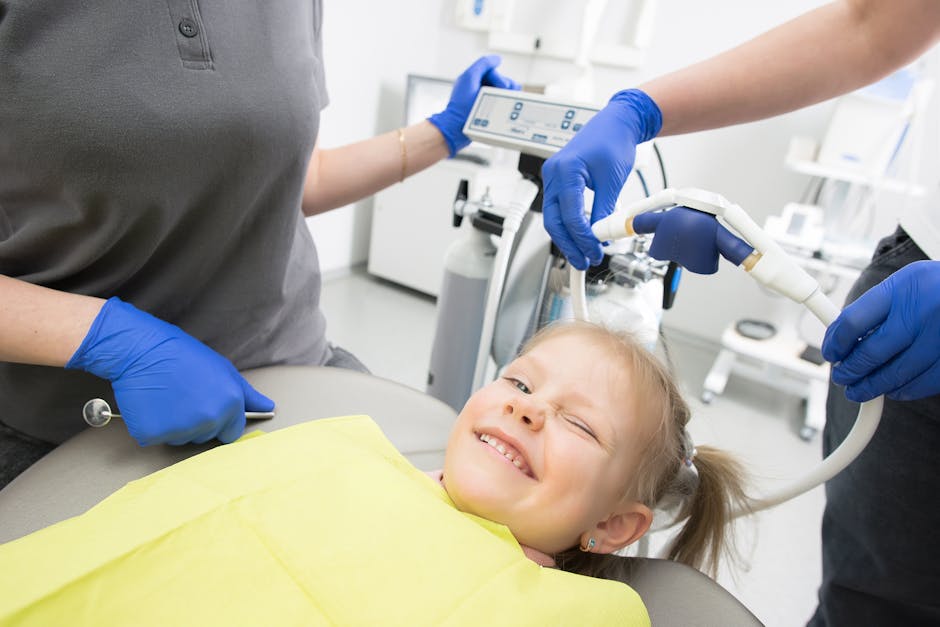Preparing Your Child for Their First Dentist Consultation: Tips for Parents
Introduction to Your Child’s First Dentist Consultation
Preparing for your child’s first dentist visit is crucial. It’s about setting the tone for healthy dental habits. As a parent, your role is to talk to your child about what to expect in a simple, calm way. Mention that the dentist is a friend and their job is to keep teeth strong and sparkly. Consider reading books or watching shows about dentist visits with your child. This helps them become familiar with the idea. Also, try a pretend dental visit at home. Maybe you’re the dentist, and their favorite stuffed animal is the patient! It’s a playful approach to showing them there’s nothing to fear. Lastly, make sure you schedule the appointment at a time when your child is usually relaxed and rested. We want first impressions to be positive and a tired or cranky kiddo might have a harder time.
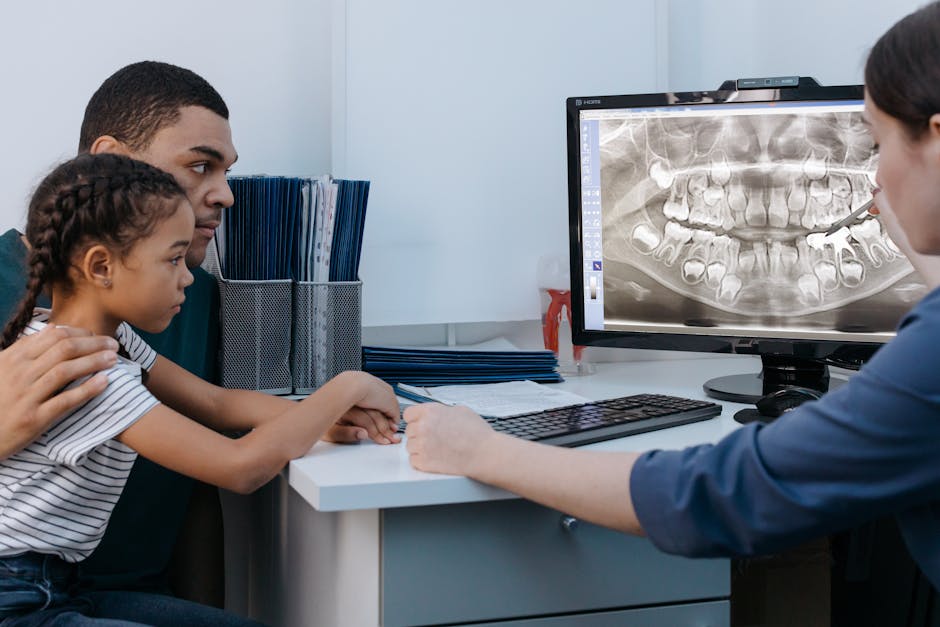
Discussing the Importance of Oral Health with Your Child
Talking to your child about oral health matters. It’s a stepping stone to good hygiene habits. When you chat with your kiddo, keep it light. Explain that teeth are superstars for eating and smiling, and they need care to stay bright and strong. Tell them about plaque – the bad guy – and how brushing and flossing team up to fight it off. Share that the dentist is a helper, a friend who makes sure those pearly whites stay healthy. Make it sound like an adventure. If they get why their teeth matter, they’ll be game to brush and less scared to hop in the dentist’s chair. Remember, you’re not giving a lecture – it’s a friendly talk. It’ll set the stage for a lifetime of solid oral health habits.
Choosing the Right Dentist for Your Child’s Consultation
Finding the right dentist for your child’s first consultation is crucial. You want someone who’s skilled yet has a way with kids. A pediatric dentist, specialized in treating children, can make all the difference. A good dentist should be patient, friendly, and able to explain things in simple terms. Research local options, read reviews, and consider asking other parents for recommendations. Once you’ve narrowed down the list, book a preliminary visit. This way, you can meet the dentist, observe their interaction with children, and ensure the clinic is warm and welcoming. Remember, a positive first experience can shape your child’s attitude towards dental care for years to come.
What to Tell Your Child About the Dentist Consultation
Kids often think dentists are scary, but you’ve got to set the record straight. Tell them dentists are like superheroes for teeth, keeping them strong and healthy. Explain that the dentist will have a look inside their mouth, count their teeth, and make sure their smile is top-notch. No need to worry about pain—the dentist is there to help, not hurt. Plus, they might get a cool new toothbrush or sticker after! Make it sound fun and important, like an adventure where their teeth are the stars of the show. Keep it light, and watch their little faces light up with curiosity.
Preparing for the Appointment: What to Bring
Alright, let’s get straight to it. When the day comes for your kid’s first dentist visit, you want to make sure you’ve got everything you need. Bring your child’s health records, showing their medical history and any allergies or medications. This helps the dentist give the safest care. Don’t forget your insurance card if you have dental coverage, as this could cut down your out-of-pocket costs. Also, bring along any questions or concerns you have about your child’s teeth. It’s your time as well, so make the most of it by getting those answers. Lastly, a favorite toy or book can be a game-changer. It keeps your little one calm and gives them a sense of security in a new place. Keep it simple, come prepared, and you’re all set for a smooth visit.
Role-Playing and Other Pre-Visit Activities
Getting your child ready for their first dentist visit can be as simple as playing pretend at home. Act out a scene where you’re the dentist, and your child is the patient, or vice versa. Use a mirror to show them how a dentist might look at their teeth, and count them together. Remember, no drills or scary tools—keep it light and fun. You can even brush their favorite toy’s teeth to show them there’s nothing to fear. This role-playing does wonders to make kids feel more at ease because they know what to expect. Plus, reading books or watching videos about dental visits can also help paint a positive picture of what’s to come. Remember to keep the mood upbeat; your calmness and confidence are contagious!
On the Day of the Consultation: Setting Expectations
On the day of the consultation, set clear expectations with your child. Explain that they’ll meet a friendly dentist who cares about keeping teeth healthy. Let them know the dentist might take pictures of their teeth with cool tools, just like a camera, and count their teeth. Say that the dentist’s chair is like a big comfy rocket seat, which can go up and down. Assure them that you’ll be right there with them, holding their hand if needed. By explaining things in a way that sounds fun and non-threatening, you help your child feel more relaxed about the visit. Remember, no surprises are best—kids feel more at ease when they know what’s coming up.
During the Dentist Consultation: How to Support Your Child
During the actual dentist visit, your main job is to help your child feel at ease. Stick close and offer a calm presence—your confidence can be contagious. You can hold their hand or provide a comforting toy. Expect the dentist to explain what’s happening in kid-friendly terms and show the child their tools, sometimes even letting them touch a few to reduce fears. Stay positive and use comforting words. If your child gets upset, remain composed and guide them gently back to calmness. This reassurance shows them there’s nothing to fear. Remember, short, positive visits build trust and lay the groundwork for stress-free dental care in the future.
Post-Consultation: Encouraging Positive Dental Habits
After the dentist visit, keep the momentum going! Your child just got a taste of professional dental care, now it’s your turn to reinforce those new shiny habits at home. Let’s not make brushing teeth a drill, but more of a cool mission they can’t wait to complete. Show excitement when it’s time to brush and floss, make it a family affair. Here’s the kicker, praise works wonders – when they do a good job, let them know they’re champs at fighting off the cavity creeps. If brushing is battle time, their toothbrush is their trusty sword. Keep it fun, maybe even throw in a reward system – sticker charts or a small treat for consistent good habits, but hey, make sure those treats aren’t sugary villains. Keep up with regular dentist visits too; it’s the secret sauce to maintaining that dental health mojo. Remember, you’re the captain of this ship, and with your guidance, they’ll sail smoothly towards a lifetime of pearly whites.
Recap: Ensuring a Smooth First Dentist Consultation Experience
Getting your child ready for their first dentist visit is about keeping things laid-back. Remember the simpler, the better. So here’s the rundown to make sure you and your little one walk into that dental office with confidence. First, chat casually with your kiddo about the dentist. No pressure, just short, sweet talks on how the dentist is a friend who keeps teeth happy and strong. Maybe even throw in a story or two about your own dentist visits. Next, try out some playful at-home practice. Have them open wide and count their teeth, maybe even take turns playing dentist. When it’s time for the real deal, bring along a favorite toy or book. It’s all about comfort, letting them clutch to something familiar. And one last thing, stay by their side, offering those reassuring smiles and thumbs-ups. This is a team effort, and trust me, your calm is catchy. Stick to these pointers, and that first dental appointment could turn into a walk in the park.

